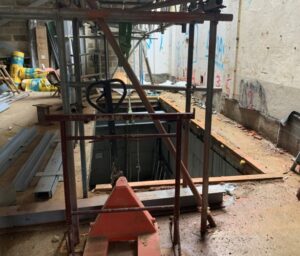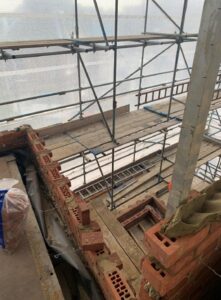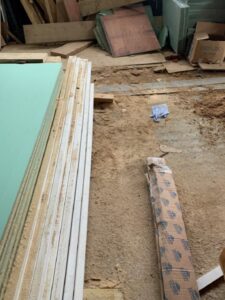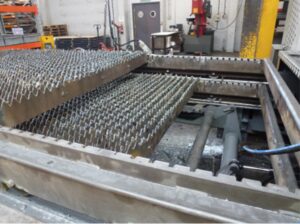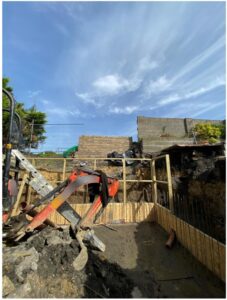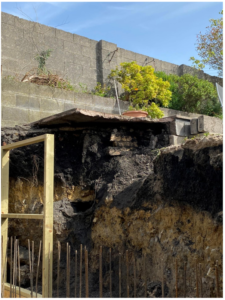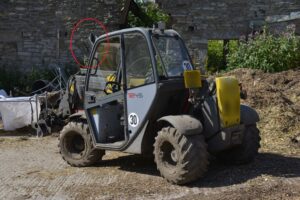Fines for company and operations manager after death from 20-foot fall
- Man fell through fragile roof in Dudley.
- Company, now in liquidation, does not escape criminal sanction
- Detailed guidance on both working on fragile surfaces and working at height is available from HSE.
A company and its operations manager have both been fined after a man fell to his death through a roof at its site in Dudley.
Maciej Rozanski, who was 42, had been working to remove a redundant steel cleaning machine from the company’s Sovereign Works site on Deepdale Lane, on 29 June 2018. However, during the work, Mr Rozanski stepped onto a fragile roof and fell more than 20 feet to the floor below. He suffered serious injuries and was pronounced dead at the scene.
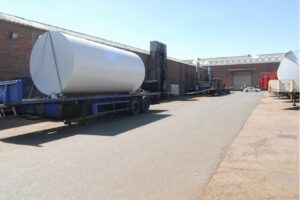
Surface Technik (Old Hill) Limited, which is now in liquidation, was found guilty following a trial earlier this week, while Robert Hammond had already entered a guilty plea, but disputed he was responsible for health and safety at the site. This prosecution was brought following an investigation by the Health and Safety Executive (HSE).
The HSE investigation found that the company began the work to remove the machinery in December 2017 and that project was led by Robert Hammond. The steel cleaning machine was housed in a corrugated steel tower on the side of the main production building which required partial dismantling in order to remove the machine. On the day of the incident, Mr Rozanski and another employee were tasked with the dismantling works. Once at the top of the tower they used an angle grinder to remove bolts holding the corrugated steel plates in place. It was during this activity that Mr Rozanski fell to his death.
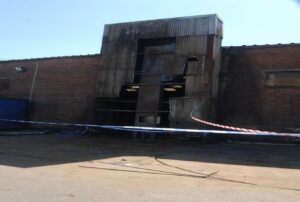
There was no suitable and sufficient risk assessment made for the work at height activities. The work to remove corrugated steel sheets from the disused tower was carried out at height, near to a fragile roof surface without suitable access equipment or safe working practices. The work was not properly organised, planned, appropriately supervised or carried out in a safe manner and the employees were not trained for working at height when the incident occurred.
- HSE has detailed guidance on working safely at height and also when working on or near fragile surfaces.
Surface Technik (Old Hill) Limited formerly of Deepdale Lane, Dudley was found guilty by a jury of a breach of Section 2 (1) of the Health and Safety at Work etc. Act 1974 and have been fined £90,000 and ordered to pay costs of £28,956 at a hearing at Wolverhampton Magistrates Court on 21 March 2025.
Robert Hammond of Sutton Coldfield accepted that he did not take reasonable care for the health and safety of both employees when he pleaded guilty to breaching Section 7 of the Health and Safety at Work etc. Act 1974. Mr Hammond was fined £8,500 and pay the same amount in costs.
Speaking after the hearing, HSE inspector Sarah Smewin said “Working from height remains a leading cause of workplace death and injury.
“This case highlights the risks of working at height from or near to fragile roof surfaces and the importance of a risk assessment, proper planning, training and supervision of work at height and the use of suitable access equipment to ensure that the work can be carried out safely.
“It also demonstrates that placing a company into liquidation is no bar to prosecution.”
This HSE prosecution was brought by HSE enforcement lawyer Andrew Siddall and paralegal officer Gabrielle O’Sullivan.
Further information:
- The Health and Safety Executive (HSE) is Britain’s national regulator for workplace health and safety. We are dedicated to protecting people and places, and helping everyone lead safer and healthier lives.
- More information about the legislation referred to in this case is available.
- Further details on the latest HSE news releases is available.
- Relevant guidance can be found here Work at height – HSE; Fragile surfaces – HSE
- HSE does not pass sentences, set guidelines or collect any fines imposed. Relevant sentencing guidelines must be followed unless the court is satisfied that it would be contrary to the interests of justice to do so. The sentencing guidelines for health and safety offences can be found here.
- HSE will always carefully consider any insolvency process and weigh that against the public interest of prosecuting a company that breaks the law.
- If necessary, we will take steps to prevent a company from being dissolved whilst criminal proceedings are ongoing.
